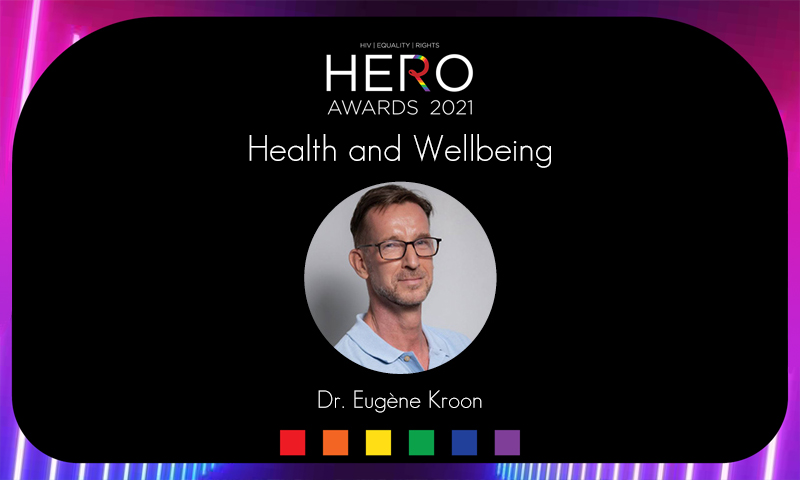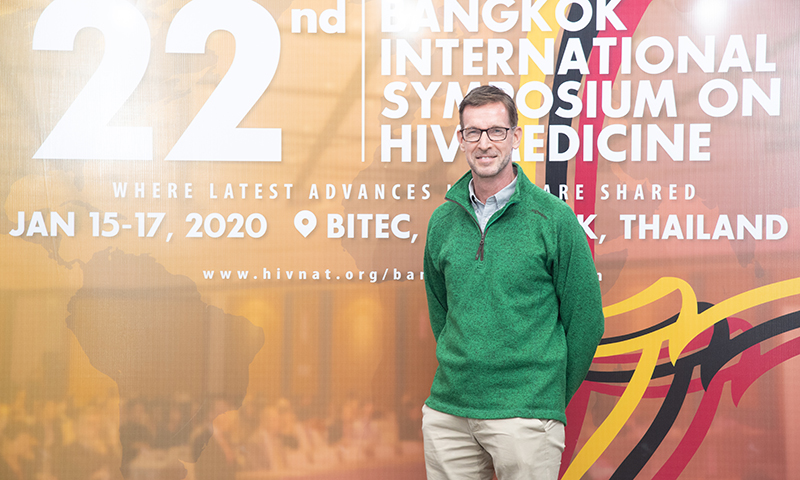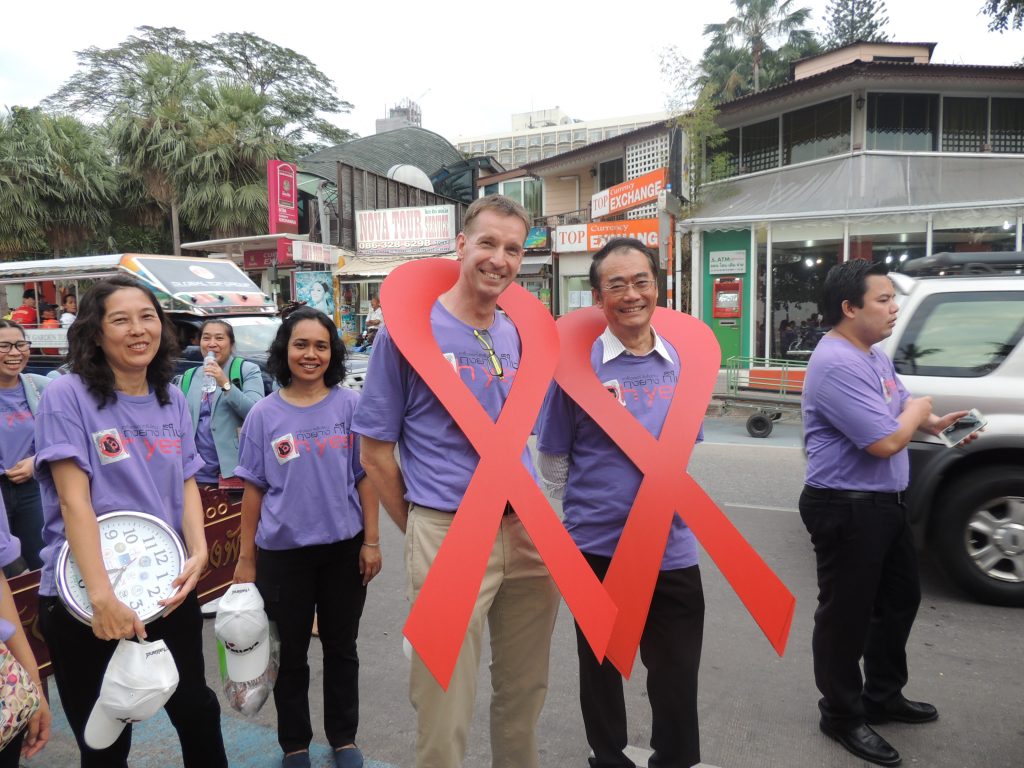
From apcom.org
Health and Wellbeing – Dr. Eugène Kroon
Thailand
Born and raised in the Netherlands by loving and supportive parents whose lives and values were marked by the second World War and its aftermath. My brother and I were the first in a large family to have the privilege of university education. I obtained my Medical degree from the University of Amsterdam, Family Medicine training from University of Hawaii later on, after working in Thailand in the 1990s had raised my interest in primary care. My first direct confrontation with HIV was during rotation in the US in 1985 as medical student, where food was left in front of the hospital room of people admitted with HIV. Upon return to Holland I was accepted as youngest volunteer by an NGO that provided practical and emotional support to gay men with HIV and remained active throughout my 4 years of medical school. My first long-term partner Frans died from HIV related complications in 1990. I was very fortunate to live in and experience several countries, but home are Thailand and the Netherlands, as I am blessed with good friends in both places. I am currently taking a break from medicine and research while living on a farm in Prachuab Khiri Khan with my partner Tob and our animals, including 17 rescue dogs.
Briefly let us know about your work
As a young MSM physician, HIV was the dominant theme of my generation and volunteering as a medical student gave me an opportunity to do something useful rather than stand on the sidelines. This has introduced me to HIV medicine. I have been incredibly lucky with the most inspiring role models, Aj. Praphan Phanuphak and Prof. Joep Lange, both physician activists with a vision. I worked at the University of Amsterdam when Joep Lange stationed me in Bangkok to help set up HIV-NAT. The early trial outcomes of HIV-NAT have contributed to implementation of broader ART access in Thailand.
In 2000 I left Thailand to pursue family medicine specialty training in Hawaii but with the intent to return to Thailand, if possible. Following this training, I contributed to the Clinton HIV/AIDS Initiative teams in South Africa and Tanzania, aiming to expand access to antiretroviral therapy. After gaining experience for 3 years as a primary care provider in the US, the opportunity to return to Thailand presented itself in 2007. In 2012 I returned to exclusively HIV clinical and vaccine research, first at the Thai Red Cross AIDS Research Centre and now at IHRI, with acute HIV infection and HIV cure research as my most recent focus.

What one achievement you’ve accomplished that you’re most proud of
I am very proud of successfully completing family medicine specialty training some 10 years after finishing medical school and amidst much younger colleagues. But I am most happy/satisfied with 2 main achievements:
- Contributing to making HIV-NAT succeed given its early impact on volunteers, ART access in Thailand, and how clinical HIV research in Thailand was viewed.
- Contributing to writing the ART roll-out plan for South-Africa which was accomplished against all odds (including political resistance) within 6 weeks and which, despite delays, has resulted in the largest national treatment program.
What do you find most challenging about your work
Coming into HIV medicine in the 1980s/1990s, I was lucky to see what can be achieved when communities, researchers and policy makers come together and work together under the righteous pressure of activists in terms of medical, social and policy progress. When I encounter perceived complacency or a perceived lack of activism now, I need to take a deep breath, take inspiration from that period and try to motivate those who I am frustrated with.
What do you do to recharge your battery
While I’d like to say I am energized by work and that is also true, I do love time at home with Tob and the animals. I also feel recharged after time spent in nature going hiking or biking, which is often even better in the company of friends or family. But I also very much enjoy spending time by myself listening to podcasts about politics or science, and reading The Economist. Thailand taught me the benefit of meditation, so I try to meditate daily.
What is your vulnerability and how do you overcome it
If vulnerability can be interpreted as weakness, then my sense of justice is not matched by equal courage to stand up for what is right. I overcome this by feeling supported and more courageous through being part of something larger, like working as a team for inspiring visionaries with more guts and less hesitation to pull me along. For example, some choices have been made by Aj. Praphan and Joep Lange for which history showed them right, but for which they were criticized at the time. I believed in their choices and was happy to execute them, but would never have dared without their leadership.

You have been nominated for the Young Achiever category. What was your reaction and please, tell us why
Disbelief. While I am honored and happy that someone considers me worthy given the nomination, I truly stand on the shoulders of giants with guts and vision, especially early on in the HIV epidemic, and I know of some truly dedicated individuals who have often sacrificed along the way to be of service. While I have worked hard, I am also incredibly fortunate in terms of circumstances and support, allowing me to do what I have done without having to compromise much in life.
Despite the fact that the COVID-19 is still with us, what is a warm/hopeful message that you would like to share with the communities in the Asia Pacific
I believe that we as communities are resilient because disease, associated stigma, and death are not new to us and while we may suffer individually, we have a collective memory ‘how to cope’. We are still standing and going strong despite HIV and stigma and unless COVID-19 is interrupting ART supplies, as is the case in some places, we have seen worse and have managed. So just like HIV research is providing clues for COVID-19 vaccines and medications, we can provide and are providing clues about the meaning of community in the face of adversity and how to live with ‘a plague’.
